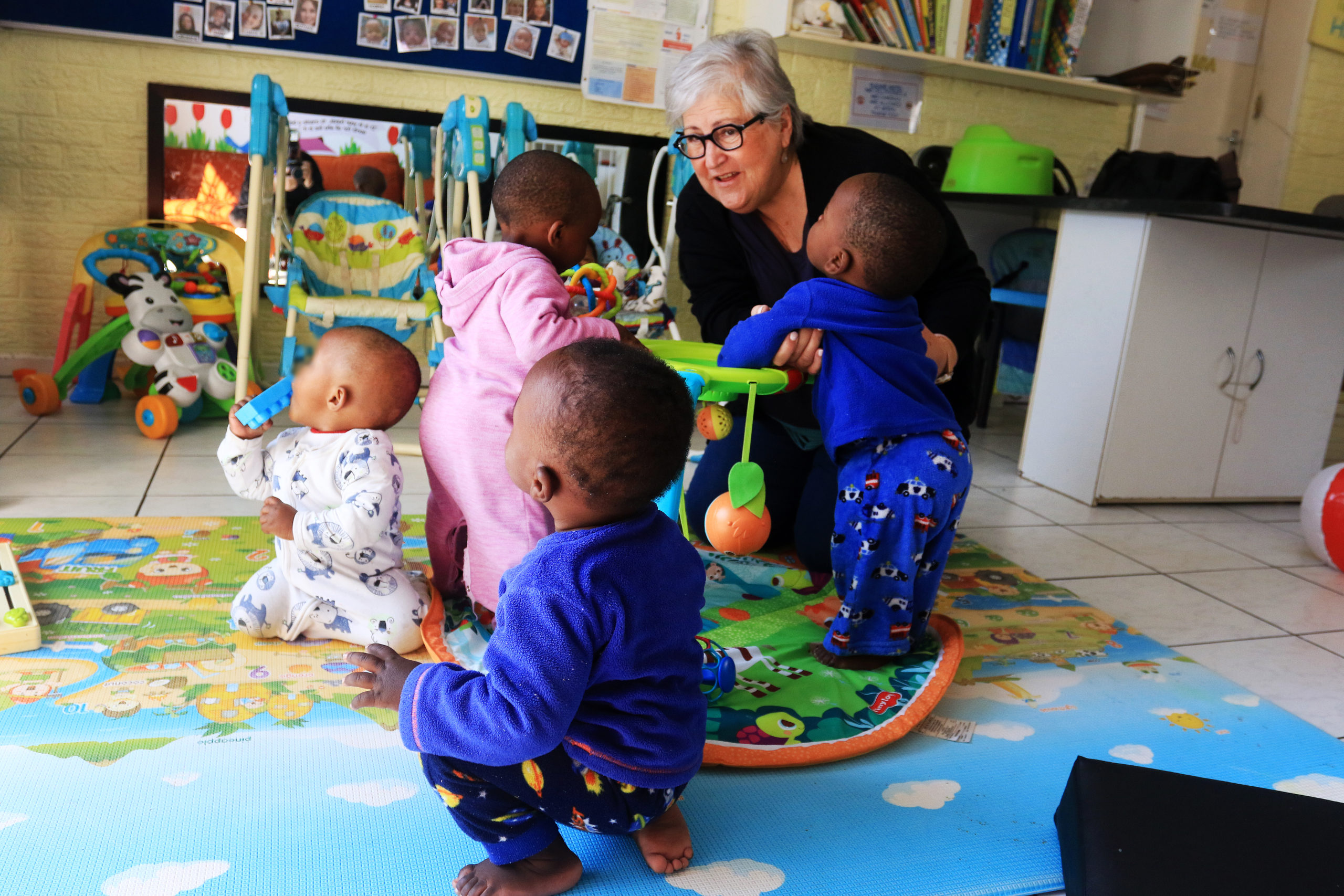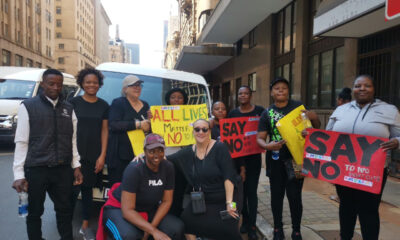
Community

Babies, buddies, and blessings – children’s home changes lives
Nestled in a quiet, tree lined suburb of Fairvale in the heart of Jewish Johannesburg is a small, nondescript suburban children’s home, slightly run down yet still cheerful, that’s positively changing hundreds of lives every day.
It’s the headquarters of Impilo Child Protection and Adoption Services – home to six abandoned babies – which is quietly having an impact on hundreds of vulnerable children and those who care for them in the province. It’s also here where the lives of dozens of volunteers from the community are being dramatically altered as a result of hours of time spent caring, swaddling, burping, stimulating, and loving these babies wholeheartedly. For many, spending time with these special souls has left them changed forever.
“Impilo has done more for me spiritually and emotionally than anything I could ever have done for the four babies I cared for,” said Daryl Fleischer, who volunteered for seven years as a “buddy” – a person qualified to take care of children outside the facility for several hours a day. So taken was she by the work, Fleischer has since studied to become an auxiliary social worker.
“These precious little people taught me how the small things in life can make you so happy; how to love unconditionally. That feeling of little arms around your neck, a head lying on your chest, a child’s unbridled laughter, brings joy beyond measure,” she said.
Impilo, which means “life” in Zulu, was opened to children in 2003. Since then, more than 2 000 children and families have benefitted in some way from its myriad services.
“What you see here is only a tiny part of what Impilo does,” said Director Sue Krawitz.
Apart from offering a temporary care nursery, Impilo, a registered non-profit, also offers professional social work, child protection services including foster care, adoption, family reunification, and alternate-care placements.
“The work is endless, so too are the numbers of abandoned and vulnerable children in South Africa,” said Krawitz.
About 3 500 children are abandoned in South Africa every year. At any given time, Impilo is intimately involved with about 150 of them in some way throughout the province.
“It takes a desperate mother to abandon a baby on some dumpsite, in a toilet, at a hospital, in a drain, or just about anywhere,” said Krawitz. “It’s not about her being irresponsible.”
First prize for Krawitz and her team is, somehow, to reunite hopeless, despairing mothers with their babies. “We do this with the help of communities, the police, and social services, but it’s never easy.”
Failing that, the babies find themselves in the long and winding social services quagmire.
Impilo places about 60 children with adoptive families every year. It places many in foster care.
Impilo’s senior caregiver and auxiliary social worker, Zodwa Maseko, has seen it all.
Sipho was found by a waste recycler stuffed in a plastic packet dumped in a dustbin during broad day light in Soweto a few months ago, she said.
“His cord was still attached. He was cold, naked, nameless, and alone.”
He was rushed to nearby Zola Medical Clinic with little chance of survival. “He was then brought to us and today, he’s a happy little guy. Sadly, we haven’t been able to track down his family,” she said.
There’s baby Andile, who was abandoned by his drug addicted mother at the hospital after delivery. He was very sick, had meningitis, and suffered from drug withdrawal. “He came to us with wide, unblinking eyes, and never slept, he was so unsettled. Now he’s walking and smiling,” she said.
Maseko has often been called out at odd hours by police to collect abandoned babies.
“One was discovered by a gogo in the middle of the night in an outside toilet still with her cord attached and covered in afterbirth,” she said.
“The granny asked neighbours if they knew whose baby it was, and finally called the police for help. It turned out to be her teenage son’s girlfriend’s baby. She gave birth all alone in the toilet and left the baby there because she didn’t know what to do,” said Maseko.
After weeks of counselling and professional intervention by social workers, the baby was finally reunited with its family, said Krawitz.
Maseko has five caregivers who report to her daily.
While one of them feeds a little boy – whose father wants to be reunited but the mother has no interest – another caregiver watches as Baby Blessing happily plays roly-poly on a colourful playmat in Impilo’s special mpepu (nursery), smiling with fleshy, dimpled cheeks.
“They are like my own children,” said Maseko, “It’s hard to say goodbye to them, but everyone deserves to have a home at the end of the day.”
Impilo relies on donations from companies and the community to help it meet its high monthly costs.
“We need about R6.5 million a year to cover costs,” said administrative manager Joy Capon. “We would love to give the house a lick of paint, fix the roof, and outside wall, but have little left after expenses.”
The petrol bill is about R17 000 a month, said Krawitz, listing the number of places drivers go to on a daily basis from searching for parents in far flung places, going to the home affairs department, to the courts and municipal offices.
It uses about 130 tins of formula a year, costing about R15 000, and about 1 200 nappies a month. Other items on its list of needs include things like creams, soaps, wet wipes, gloves, and tissues.
“We’re battling. During the COVID-19 pandemic, people were extremely generous. However, things aren’t the same, and it’s a constant battle to meet our financial needs,” said Krawitz.
Though Impilo is enormously grateful to its regular donors, it finds itself needing more.
“It’s the R100 here and there, the small monthly debit order, packet of nappies, the gently worn baby grow, all of these things make a huge difference,” she said.











Gilli
September 30, 2022 at 3:31 pm
How do we donate to the home?